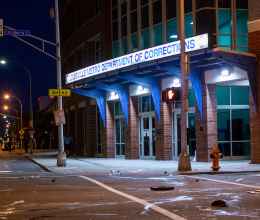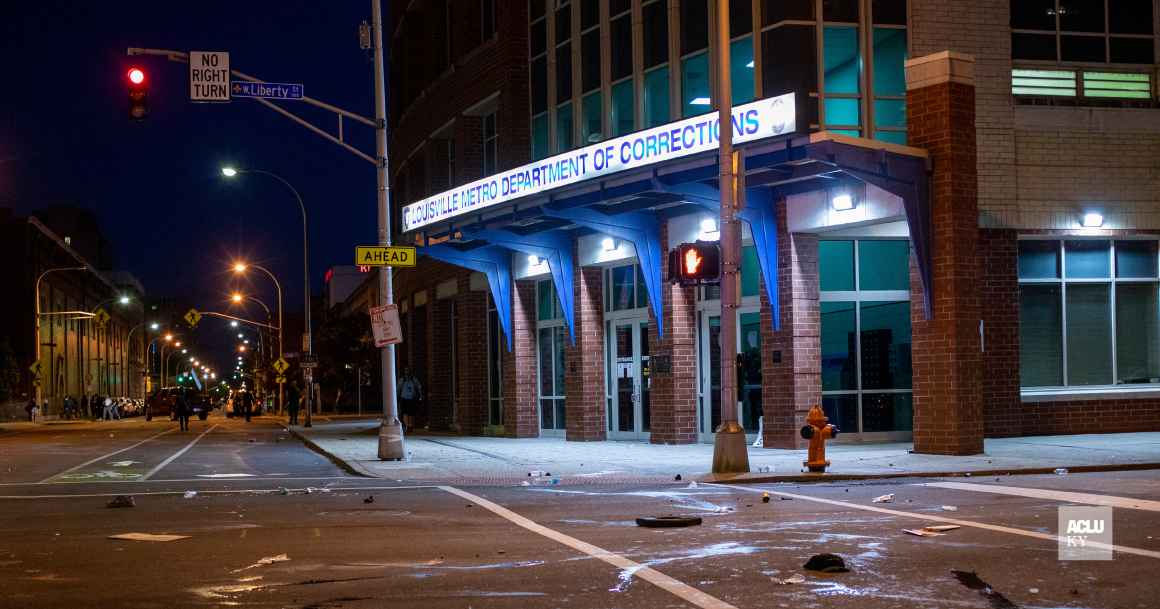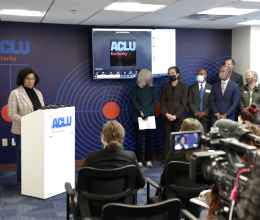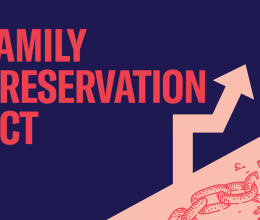
What happened?
Three people have died in the custody of Louisville Metro Department of Corrections (LMDC) in just the past week, shining a violent light on the abhorrent conditions in the city’s jails. The conditions are dire and untenable for both incarcerated people and corrections officers. When the government chooses to incarcerate a person, it also takes on the responsibility of caring for that person. No family should receive a phone call informing them a loved one died in the custody of their government.
At the time of this writing, we know two of the three people who died were Black women. One allegedly died from a drug overdose and the other allegedly from suicide. Information has not been shared about the third person, and no official reports or causes of death have been released for any of the three.
Why did this happen?
The deadly conditions are fueled by overcrowding and understaffing. Overcrowding is caused largely by the broken cash bail system and the failed war on drugs. According to the Fraternal Order of Police, 74% of the people currently incarcerated by LMDC are detained only because they cannot afford to post bail. Freedom is not a commodity and no person should have to purchase it.
Releasing people pre-trial (the people held only because they cannot afford to post bail) would alleviate overcrowding and improve conditions without compromising public safety. Thousands of people were released pre-trial nationwide in 2019 to reduce crowding and limit the spread of the coronavirus in jails and prisons. According to Kentucky Supreme Court Chief Justice John Minton, the 6,000 Kentuckians released pre-trial due to the pandemic had the same rearrest rate as those released during the same period the year before: 4.6%.
As a person in long-term recovery, I can tell you the solution to our drug epidemic is not in the cell at 6th and Liberty. –Kungu Njuguna, Policy Strategist, ACLU of Kentucky
The failed war on drugs is also fueling overcrowding. People with substance use disorder need access to affordable, community-based treatment programs, not incarceration. Expanding access to treatment for people with drug-related offenses would ease crowding by sending people to treatment instead of jail or prison. This would also give Kentuckians a real opportunity to heal and return to their families and communities. Understaffing combined with overcrowding contributes to these deadly conditions because corrections employees are stretched too thin to ensure everyone's safety, but hiring more officers is not the answer. We must address the root of the problem – over-incarceration. Ending cash bail and the war on drugs are two places to start.
What are we doing?
We wrote to Mayor Greg Fischer and Louisville Metro Council in October 2020 demanding specific and feasible actions after 15 people experienced overdoses in September. Mayor Fischer and Metro Council failed to act, and now people are dying.
At the start of December, three people died in LMDC custody within seven days. On Monday, December 6, we hosted a press conference with several other organizations and demanded action from Mayor Greg Fischer, Louisville Metro Council, and elected judges and prosecutors.
We followed the conference with a community meeting to organize a collective strategy and draft a coalition letter to elected judges and prosecutors outlining specific actions they can take independent of Mayor Fischer and Metro Council. We are seeking immediate relief for the people suffering in Louisville Metro Department of Corrections and demanding Commonwealth Attorney Tom Wine and Jefferson County Attorney Mike O'Connell immediately stop requesting bench warrants with cash bonds for anything other than alleged offenses that present a legitimate threat to community safety. We are also demanding LMDC enforce its current contract with Wellpath Medical Services to support people with substance use disorder – because, as we all know, affordable and accessible treatment is part of the solution to our commonwealth’s substance use disorder crisis, not incarceration.
The letter was addressed to Jefferson County Attorney Mike O’Connell, Commonwealth Attorney Tom Wine, Jefferson Circuit Court Chief Judge Angela Bisig, and Jefferson District Court Chief Judge Annette Karem. It was shared with Mayor Greg Fischer and LMDC Jail Director Dwayne Clark. As of 5PM ET, Monday, December 6, the letter was signed by 19 organizations with only a couple of hours' notice. We expect more to join. (If your organization would like to sign on to the letter, please email ACLU-KY Communications Director Angela Cooper at Angela@ACLU-KY.org or call 502-581-9746.)




